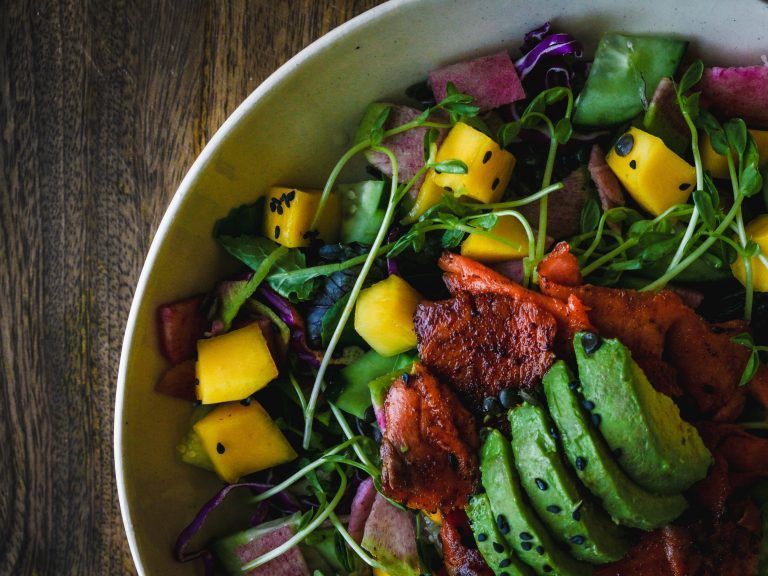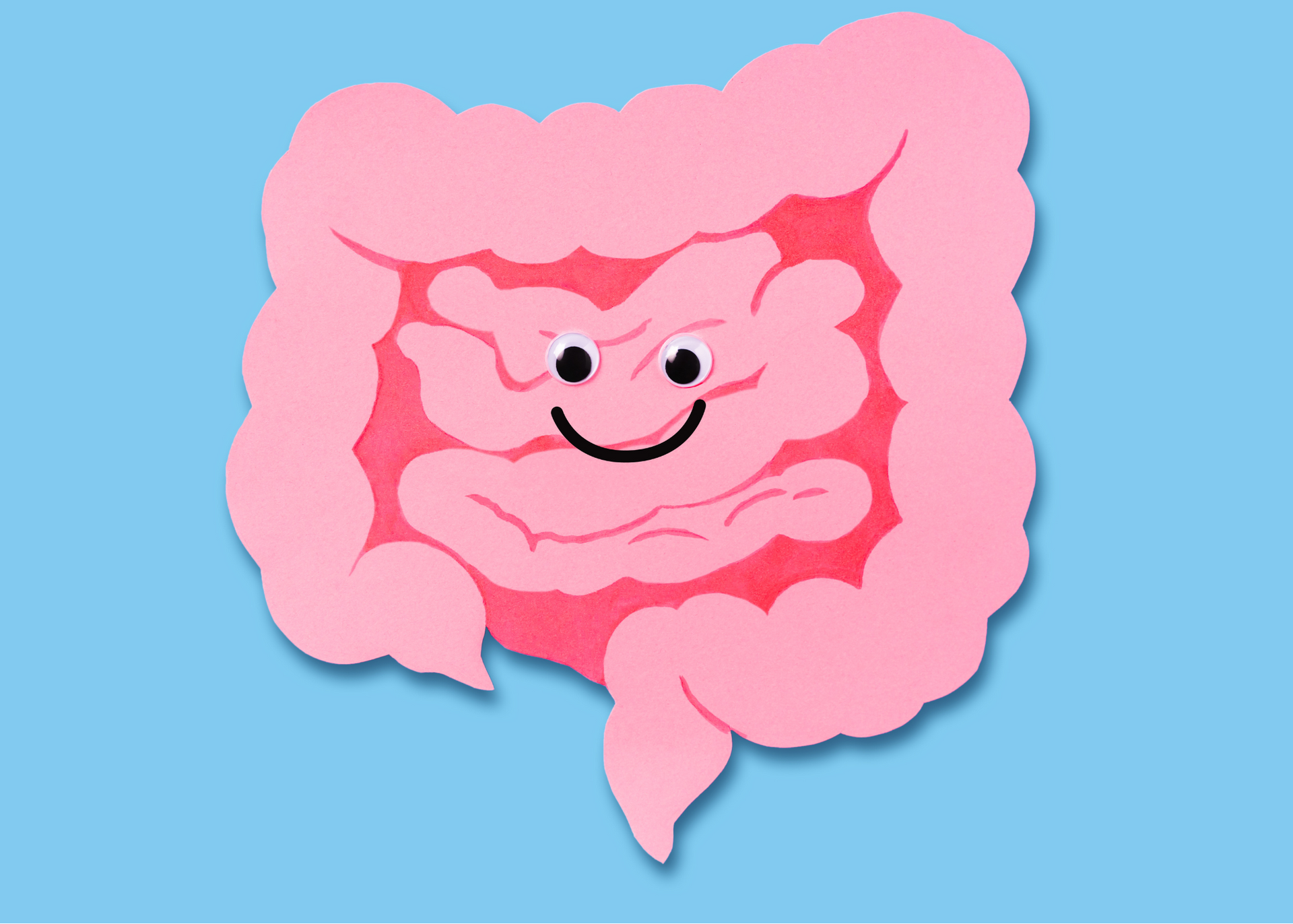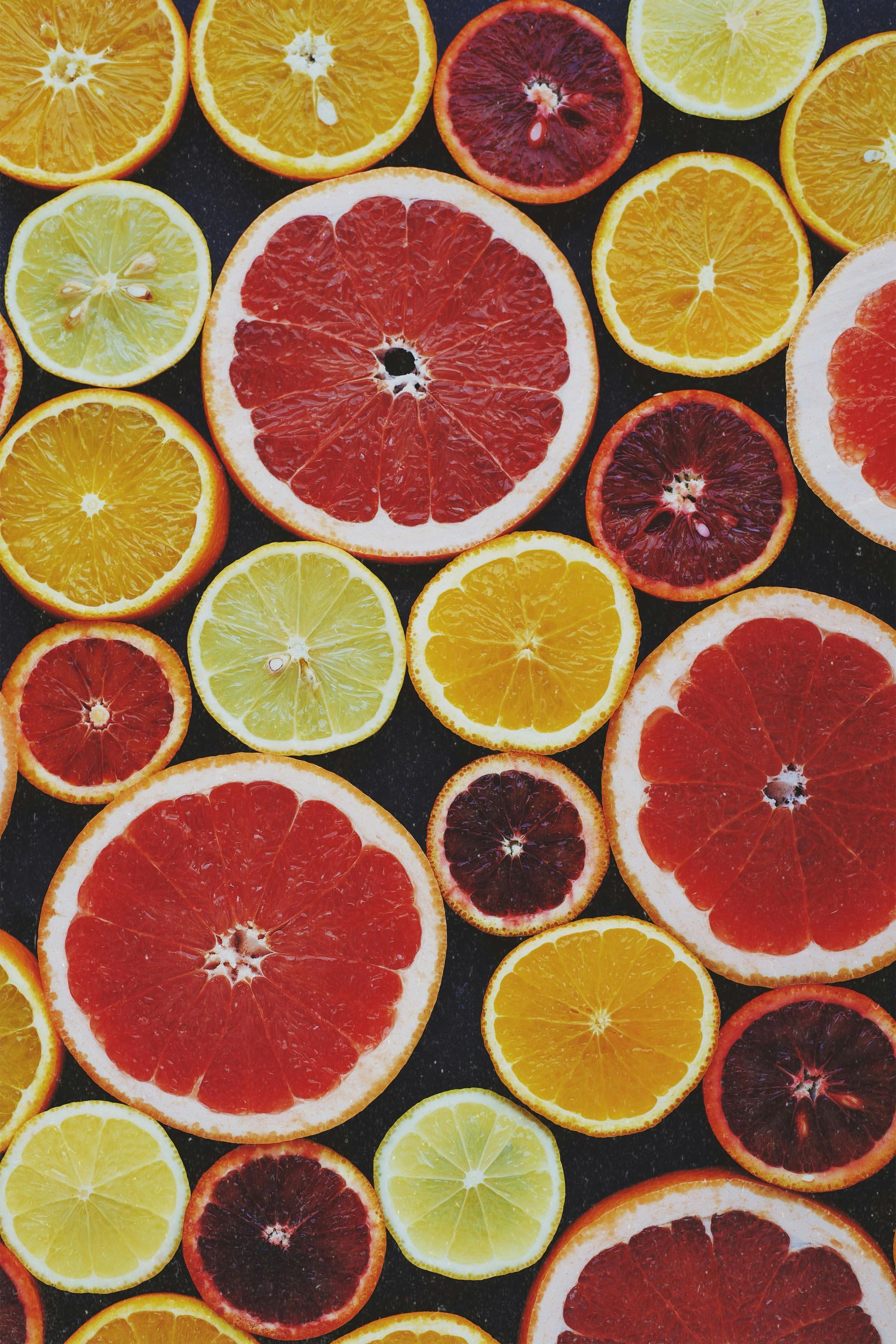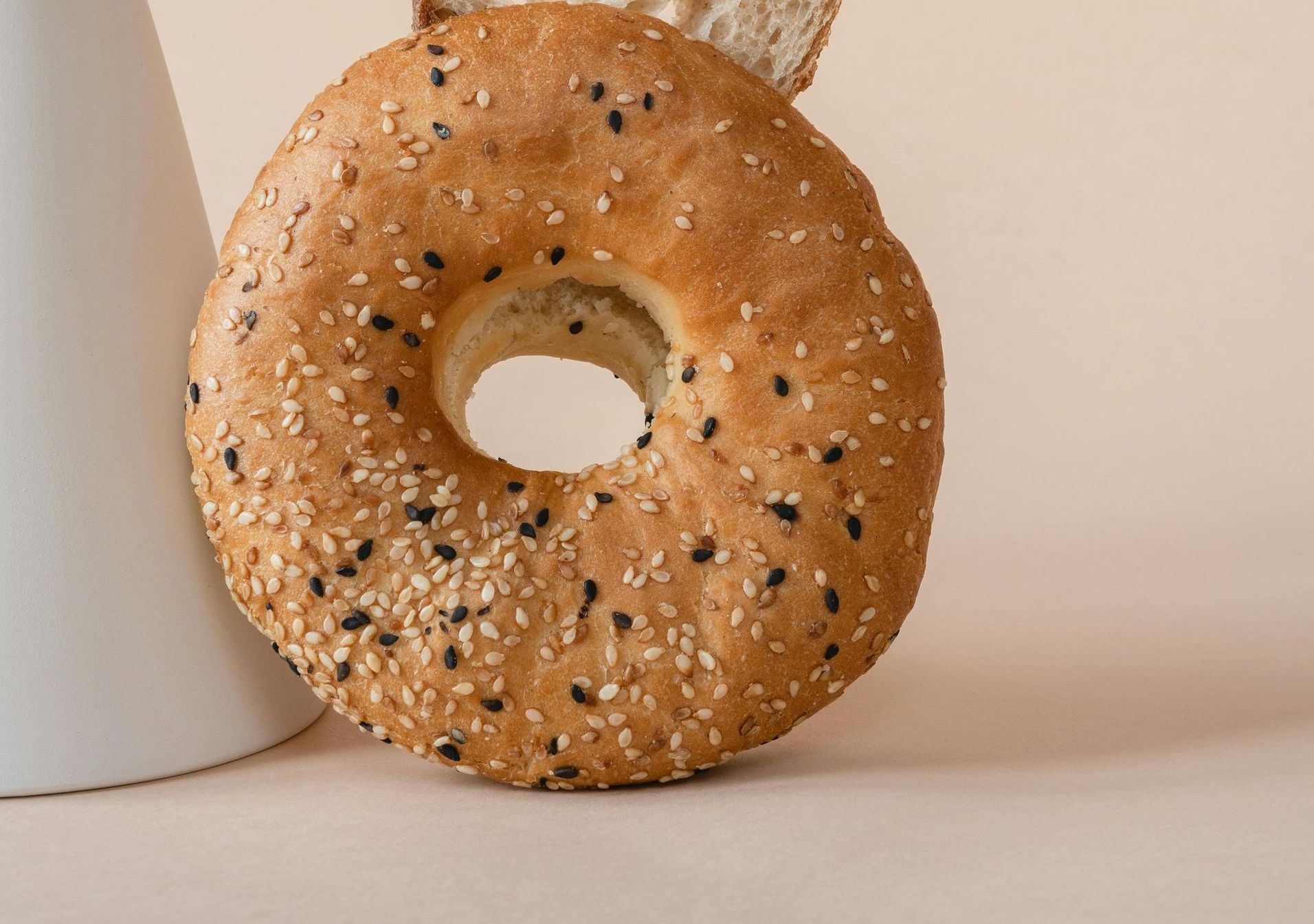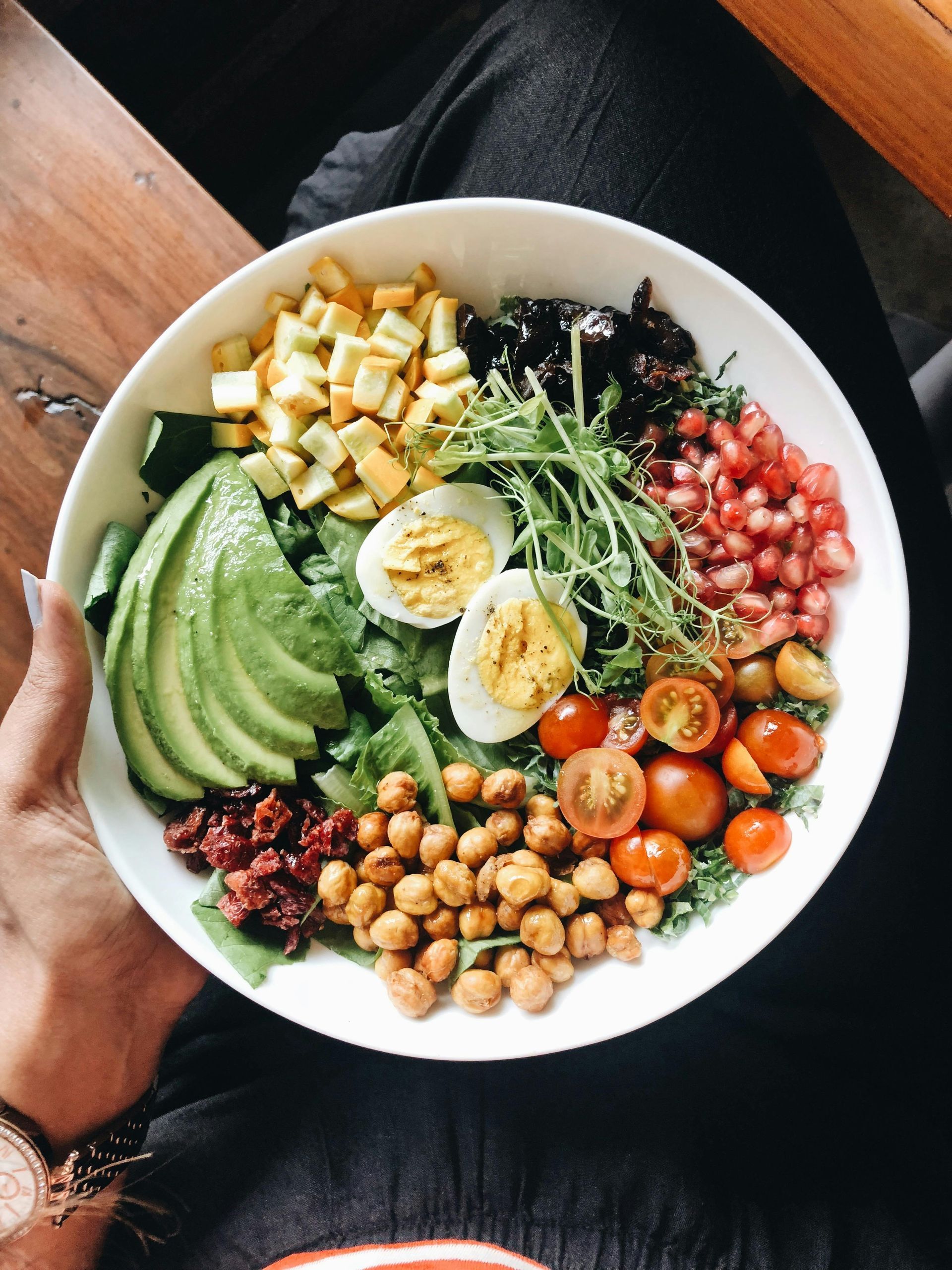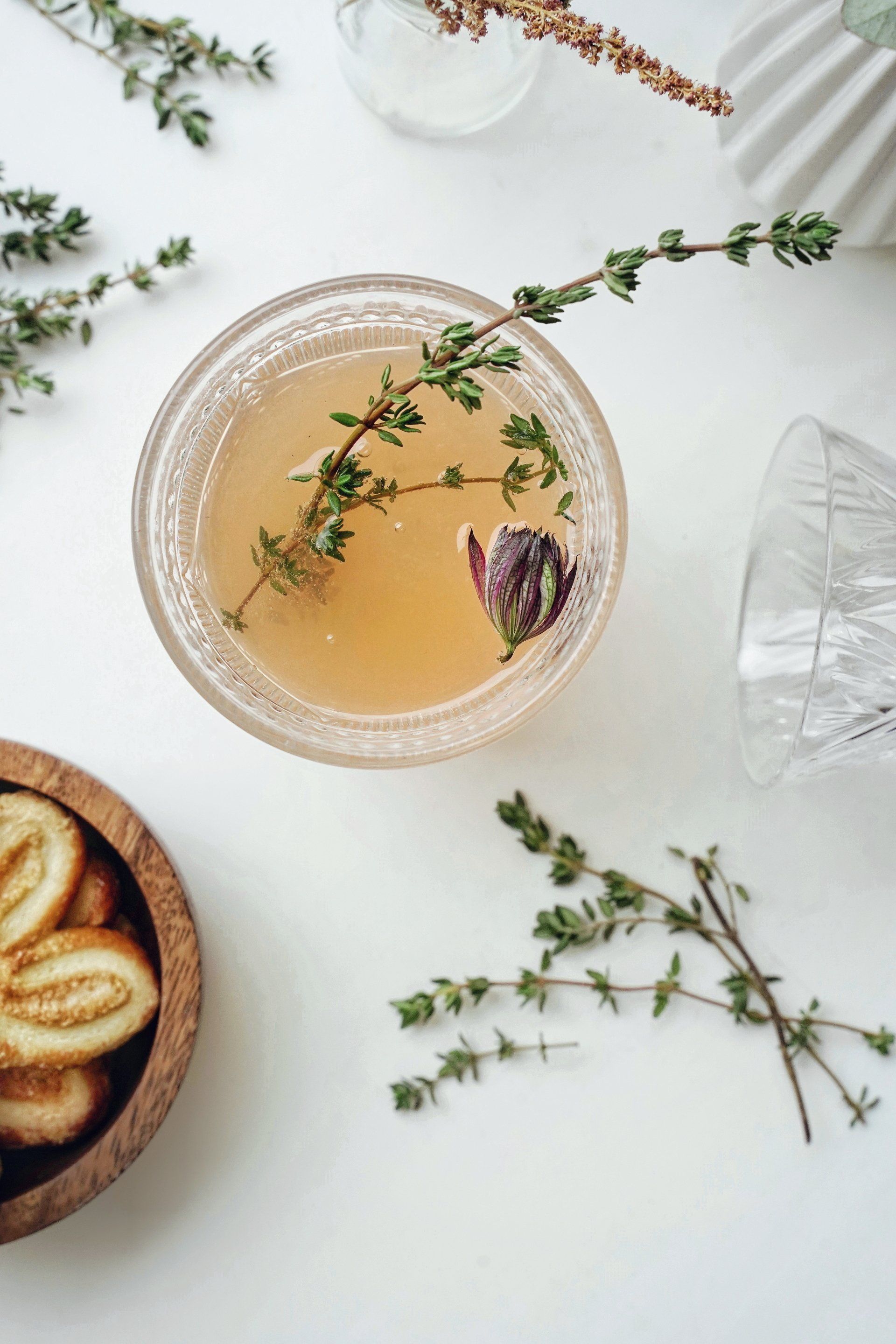The Best Online Guide to Cooking Oils
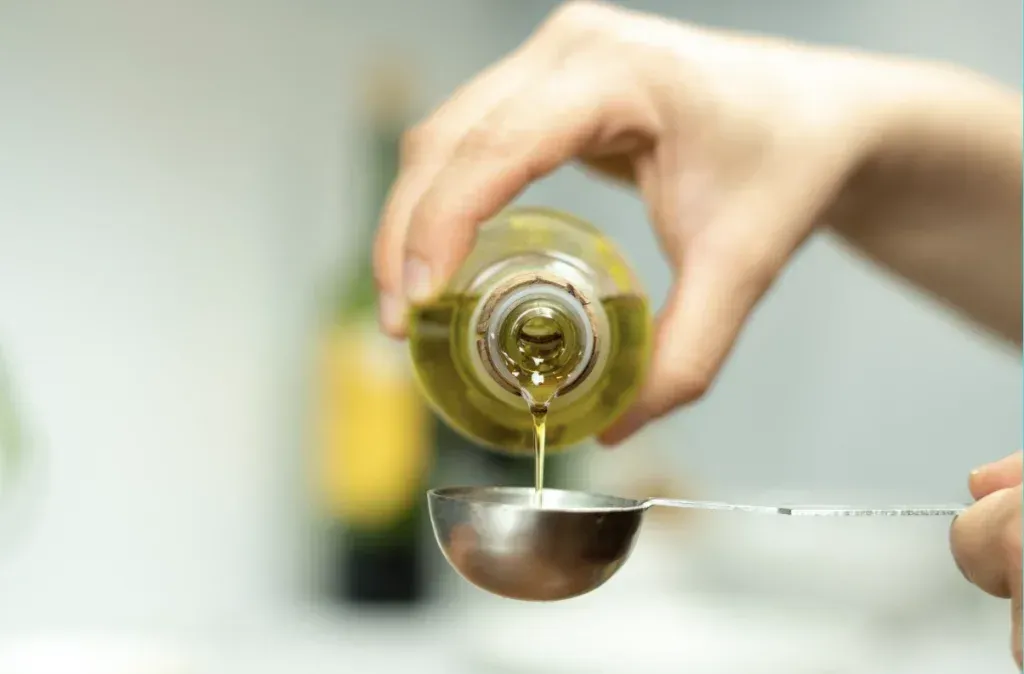
Cooking oils can make or break how healthy a meal is, but navigating cooking oil options can be confusing!
In this blog post I break things down into three categories:
- I explain the three most important factors when choosing a cooking oil.
- I reveal which cooking oils to avoid and why .
- I share my favorite cooking oils and how I use each one !
Top three cooking oil factors
There are three main oil properties to focus on when choosing your cooking oil: saturation, smoke point, and process . I’ll dive into each of these in detail below.
1. Saturation
The saturation of oils determines their stability.
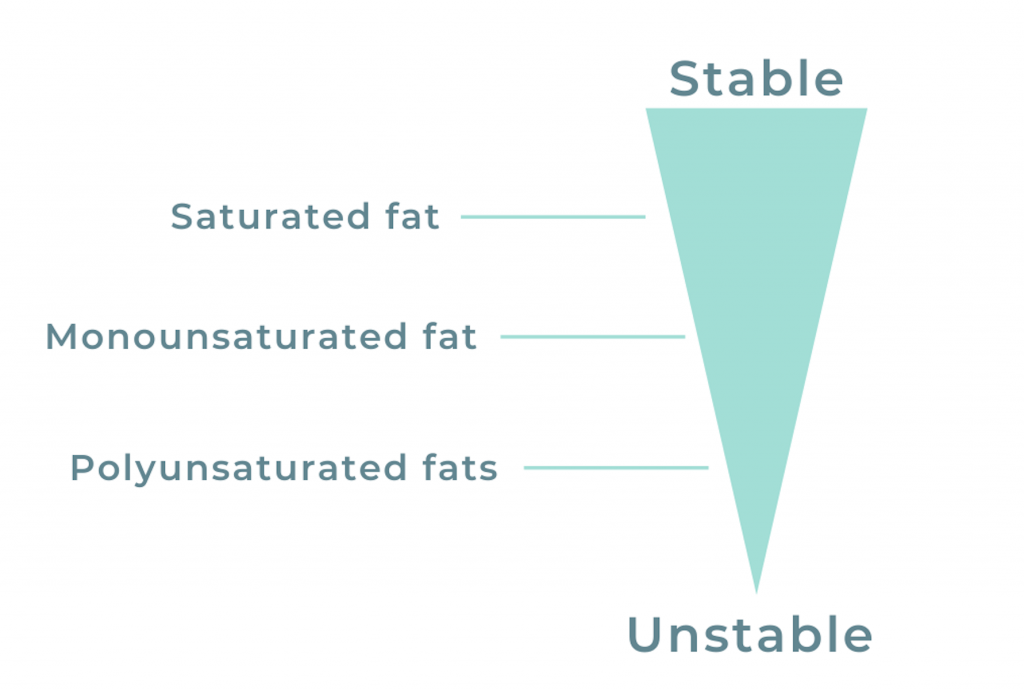
Polyunsaturated oils are unstable , meaning that you have to be more careful when cooking with them at higher temperatures. Examples include flax, corn, safflower, sunflower, soybean, cottonseed, and sesame oils.
Monounsaturated oils are more stable , meaning they are less apt to become denatured when cooking with them. Examples include avocado, olive, peanut, and canola oils.
Saturated oils are very stable and are not likely to denature when cooking. Examples include coconut oil, butter, and ghee.
Trans fats are made after oils go through a process to add hydrogen, which allows them to be solid at room temperature. Trans fats are associated with many health risks , such as increasing unhealthy cholesterol levels and elevating the chance of strokes and heart attacks.
Examples include margarine, plant-based butter substitutes, vegetable shortening, partially hydrogenated oils.
Where are these oils found? Trans fats can be hidden in popcorn, non-dairy coffee creamers, frosting/icing, fried foods, and baked goods (muffins, cakes, pastries and doughnuts, etc.).
2. Smoke Point

A smoke point is the highest temperature at which an oil can be heated before it breaks down and oxidizes , creating dangerous compounds. (Click here to learn more)
Below is a list of smoke points for common cooking oils:
- Avocado – 500-520 F
- Coconut – 350-385 F
- Ghee – 485 F
- Butter – 300 F
- Extra virgin olive oil – 325-385 F
- Canola – 400 F
- Corn – 450 F
- Peanut – 450 F
- Safflower – 510 F
- Sunflower – 450 F
- Sesame – 350 F
3. Process

- Refined oils – These are highly processed to remove impurities, leading them to be more stable (i.e. they can have a longer shelf life) but the processing can damage the natural elements in the oils. They often undergo several variations of processing to make the oils more bland, usually with extremely high heat.
- Unrefined oils – These are minimally processed , which allows the vital nutrients of the oils to be preserved, as well as the original colors and flavors. These oils are usually cold-pressed (temperature controlled) or expeller-pressed (mechanically controlled) and are also known as virgin or extra virgin.
- Solvent extraction – The process used to extract canola oil is called hexane solvent extraction , which involves using the solvent hexane to pull oil from the seeds before it is heated and bleached. All of this processing leaves the resulting oil damaged with levels of unhealthy trans fat present due to the deodorization process.
Cooking Oils to Avoid
Cooking oils to avoid because of their processing :
- Canola
- Peanut
- Safflower
- Sunflower
Cooking oils to avoid because of their high omega-6 content (more info on omega-6’s here , here , and here )
- Safflower
- Sunflower
- Peanut
- Corn
- Soybean
- Grapeseed
Cooking oils/fats to avoid because of their trans fat content:
- Vegetable oil
- Pam spray
- Margarine
- Plant-based butter substitutes
- Vegetable shortenings
My Favorite Cooking Oils
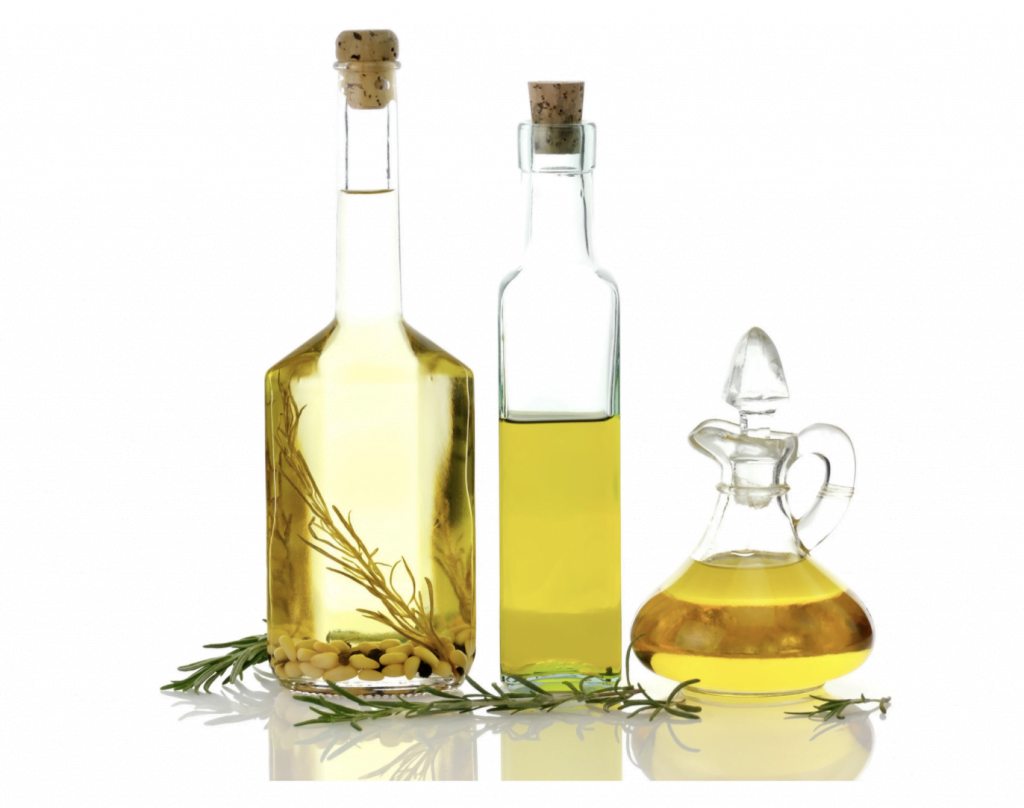
Avocado Oil
- High smoke point and monounsaturated, making it fairly stable .
- High in oleic acid (which has been found to have an anti-inflammatory effect and support cellular health )
- Use for high temperature cooking like grilling, high heat sautéing, and roasting.
Grass-fed ghee
- High smoke point and saturated, making it very stable .
- Lactose-free.
- Contains fat-soluble vitamins vitamin A, vitamin E , and vitamin K.
- Use for high temperature cooking like grilling, high heat sautéing, and roasting.
Extra Virgin Olive Oil
- Low smoke point and monounsaturated, making it unstable .
- Make sure to use a high-quality olive oil that is third-party tested! Many olive oils are adulterated, meaning the company adds or substitutes lower quality oils to cut costs and make more money. You can learn more here.
- My favorite olive oil brands include California Olive Ranch , Bragg, Cobram Estate, and Oro Bailen.
- Use for low heat sautéing and low temperature baking. Olive oil can also be drizzled on a meal after it is cooked or used in a salad dressing.
Coconut Oil
- Moderate smoke point and saturated, making it fairly stable .
- Use for low to medium heat sautéing and baking.
- Contains MCT’s which can fight yeast and bacterial growth along with helping boost metabolism.
Key Takeaways
Congrats – you are now a cooking oil expert!
Feeling overwhelmed? Just remember to keep these three things in mind:
- Understand which oils to use for what types of cooking based upon their smoke point and stability (whether they are saturated or unsaturated). Use avocado oil and ghee for high temperature cooking, and use less stable oils like olive oil for lower temperature cooking or to drizzle on top of a meal/
- Avoid oils that are processed with high heat or high in omega-6 fats . Common cooking oils to avoid include peanut, corn, canola, safflower, sunflower, and soybean oil.
- Always read ingredient labels and never make assumptions! Unhealthy oils can be found in a variety of food products including products that are deemed healthy like salad dressings and hummus.
Be sure to be sure to follow me on Instagram @plateandcanvas for more recipes and nutrition tips!
Continue Reading



